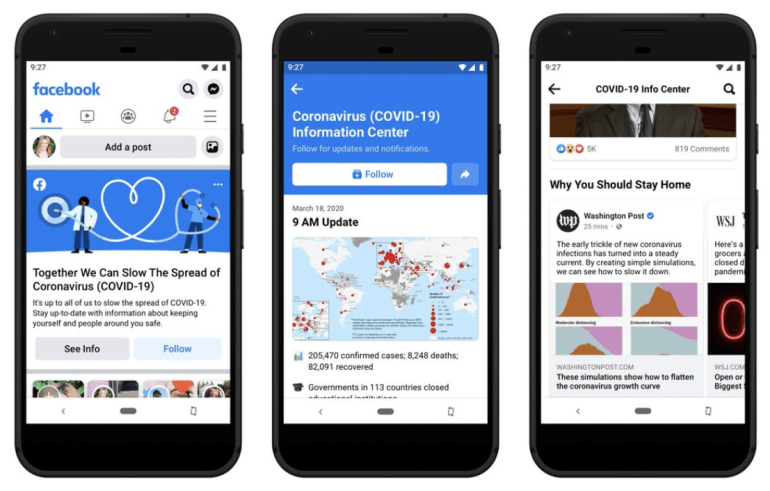Facebook is warning that its business is being “adversely affected” by the coronavirus pandemic that is sweeping the globe.
In a blog post, Alex Schultz, VP of Analytics, and Jay Parikh, VP of Engineering, lay out the challenges the company is facing. With unprecedented numbers of people quarantined, sheltering in place or practicing social distancing the company is experiencing a major uptick in usage. In many countries, especially the hardest hit, “total messaging has increased more than 50% over the last month.” Similarly, in those places “voice and video calling have more than doubled on Messenger and WhatsApp.” Italy has likewise “seen up to 70% more time spent across our apps since the crisis arrived in the country.”
Facebook previously warned its ad business was likely to take a hit, but today’s post highlights the additional issues the company is facing. Because the increased usage is on services that are free, Facebook is not benefiting monetarily by the uptick. At the same time, the company’s infrastructure still has to bear the burden of the increased load. The two executives laid out the challenges:
“We have received questions about revenue, so want to provide some context here too: Much of the increased traffic is happening on our messaging services, but we’ve also seen more people using our feed and stories products to get updates from their family and friends. At the same time, our business is being adversely affected like so many others around the world. We don’t monetize many of the services where we’re seeing increased engagement, and we’ve seen a weakening in our ads business in countries taking aggressive actions to reduce the spread of COVID-19.”
The executives did provide assurances Facebook is doing everything possible to make sure their infrastructure can deal with the days ahead.
“Maintaining stability throughout these spikes in usage is more challenging than usual now that most of our employees are working from home. We are working to keep our apps running smoothly while also prioritizing features such as our COVID-19 Information Center on Facebook as well as the World Health Organization’s Health Alert on WhatsApp. We’re monitoring usage patterns carefully, making our systems more efficient, and adding capacity as required. To help alleviate potential network congestion, we are temporarily reducing bit rates for videos on Facebook and Instagram in certain regions. Lastly, we’re conducting testing and further preparing so we can quickly respond to any problems that might arise with our services.”
Facebook is just the latest example of how companies, even those without traditional supply chains, are being negatively impacted by the pandemic.

